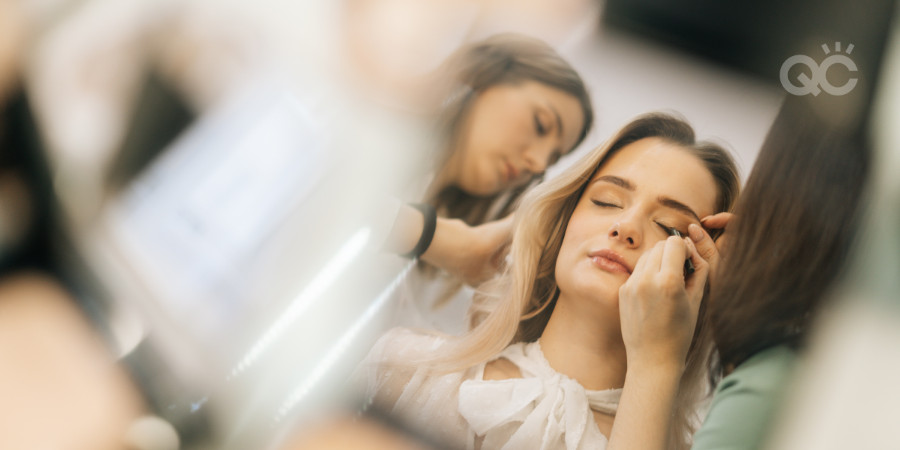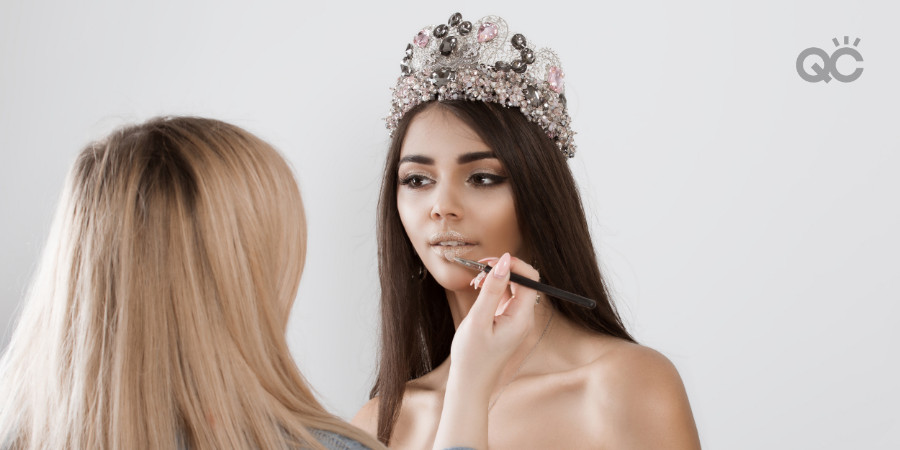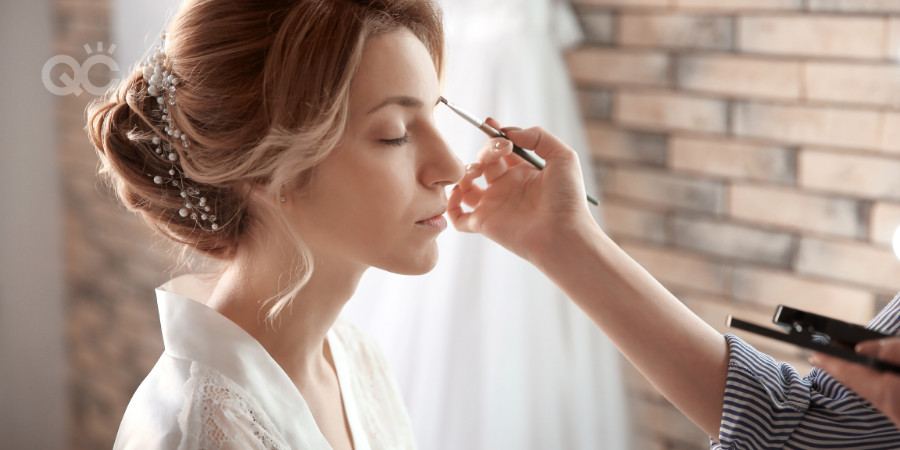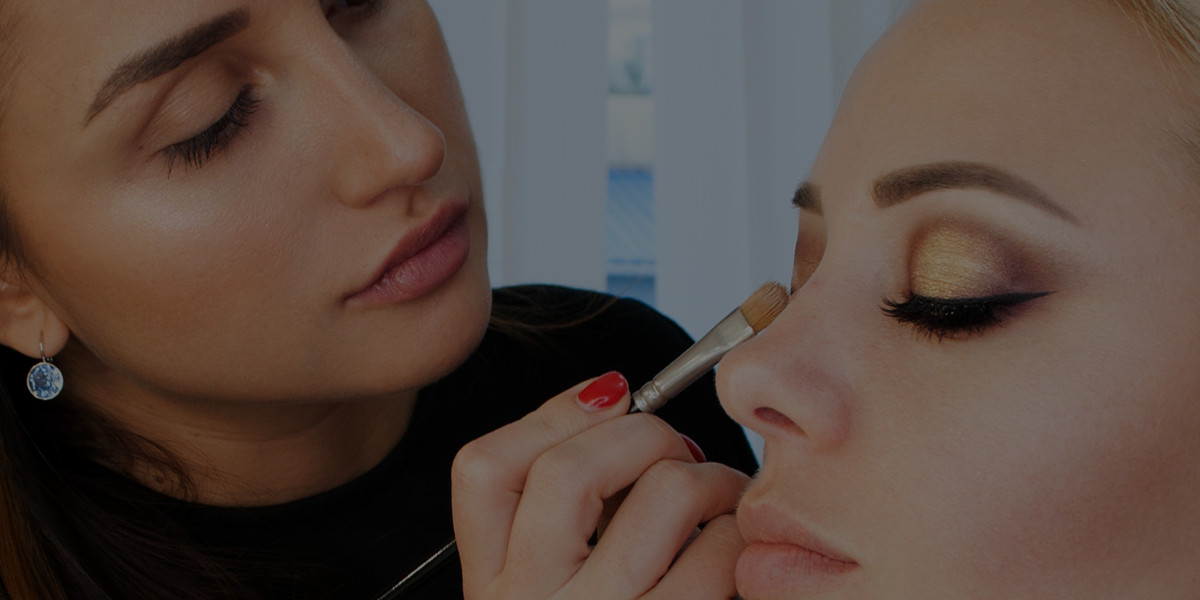Building your makeup career? Renowned MUA, Charlotte Ravet, shares 4 business mistakes that you need to avoid!
Charlotte is the proud owner of her very own hair and makeup business, A Date With Charlotte. From bridal to editorial, to film and television, and everything in-between – Charlotte’s extensive makeup training allows her to provide a wide variety of services that cater to ALL types of clientele!
Her extensive resume includes working for Prada, L’Oreal, and even the cast of the hit show, Glee! A developer of educational programs, Charlotte has even been awarded Best Makeup Educator of the Year by the Australian Industry Makeup Awards.
Starting a new career can be very exciting! But that excitement can also quickly turn into a need of creating income. If you’re not careful, rushed decisions or the fear of missing out, can lead you to make mistakes that can impact your salary as a makeup artist.
Here are some mistakes that you should avoid!
1. Undercut Your Rate
The best way to set your rate is to search online or ask forums and dedicated groups what the recommended rates are for your area. Makeup rates are common discussion topics and any experienced makeup artist will happily answer this question.
You can base your rates depending on your location, your experience, the products you use, and what you include in your service packages. You will need to have a full day rate for studio work such as fashion or film work, as well as a client rate which you will charge per face.
When working for film or in fashion, you should not charge per talent. Instead, you should charge per day as you will often need to stay on set to do touch-ups. Companies and brands might try to negotiate the rates with you, but you should set a limit on how much you’re willing to lower your rate.
If you’re just starting out and work for a small brand, you can set a rate a bit lower than the usual full-day rate in your area, but do not accept a price that is too low. If you under-price yourself, it will be much harder for you to increase your rates afterward to reflect the true value of your work!

Other makeup artists in your area will not appreciate it if you undercut your prices, as it is bad practice for both the competition and industry! By offering cheap prices, you can drive down the overall makeup artist salary in your area.
Remember, your salary expectation will be the same after 30 years. Make sure that you respect the work previously done by experienced artists.
1. Not Considering All Your Costs
Let’s break it down. Your makeup artist rate should cover time, experience, education, products, and all other costs related to your business. Let’s say you spend XXX in marketing each month, plus XXX hours each week on your social media and admin tasks. Then these costs should be reflected in your salary.
Very often, your clients would try to push down your price by arguing that they just “want a simple makeup”. But they may not realize how much effort and investment you have put in to create this simple makeup. At the end of the day, remember that they need YOU and YOUR SKILLS to do it!

A bit of diplomacy and explanation will often help your clients understand your point of view. Don’t be afraid to turn down work if you don’t think the client is a good fit, or if the client is not willing to accept your prices.
Remember, working undercutting your prices not only decreases your salary but also your self-esteem.
3. Being Too Precious With Work Opportunities
If makeup is your job, then you might need to make some choices in order to have a sustainable income. It is important to be realistic about your career and remember that it may take years before your land your dream job. To reach your goal, you may need to do accept other types of work. Let’s take a classic example:
Your dream is to become a fashion makeup artist represented by an agency. To get there, you will need to build your portfolio and will have to do countless unpaid photoshoots to build your network. In order to maintain a stable salary to support yourself whilst working on your more creative projects, you may have to branch out into different areas of makeup artistry.
Being a bridal makeup artist or working for a makeup brand may not be what you want to do, but it can be a good source of income. And you never know! You might find out that you love doing bridal work or find wonderful job opportunities with a cosmetic brand.

Don’t start closing doors. The wonderful thing about being a makeup artist is the fact that there are countless work opportunities once you have the skills!
I personally specialize in makeup education and I love it! I started training for a makeup academy, and since then, have developed a variety of training programs and even help train for brands. Today, I love makeup as much as educating.
4. Being Disorganized
Not keeping track of everything can cost you quite a bit at the end of the year! When you work as a freelance makeup artist, you are responsible for your own salary, expenses, and… taxes!
Make sure that you keep receipts of what you can claim on taxes, invoice your clients on time, and keep track of your payments. You don’t want any bad surprises at the end of the year when you realize you have to pay more taxes than you were expecting. Planning is key when you work as a freelancer.

Remember, do what you love and you will never work a day in your life!
My number one rule of being a makeup artist is to enjoy what you do! From experience, being stressed about the lack of work does not bring in more money. Instead, take a step back, breath, and make sure you don’t burn out. Take the time to improve your skills, work on your portfolio, or network!
But even during your best months, you never know what might come up, so try to keep some savings!
After working in the industry for a while, you will start to get a better idea of what your annual salary will be. There might be months where you’re earning a lot, and there will also be quiet months. It is important that you identify these periods of rest time to avoid stress and financial difficulties.
